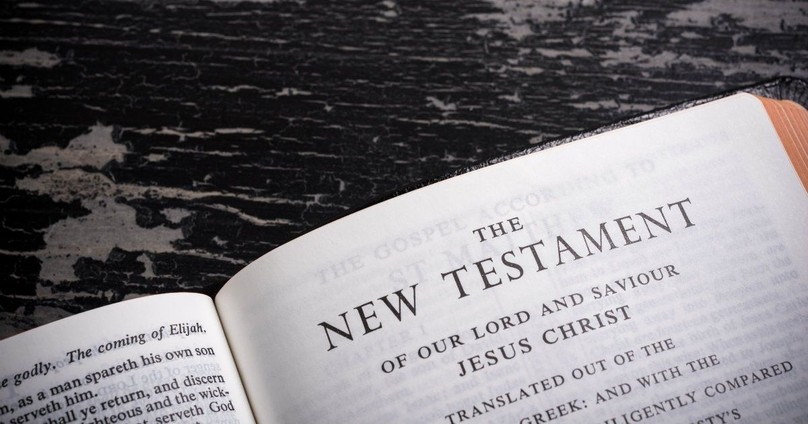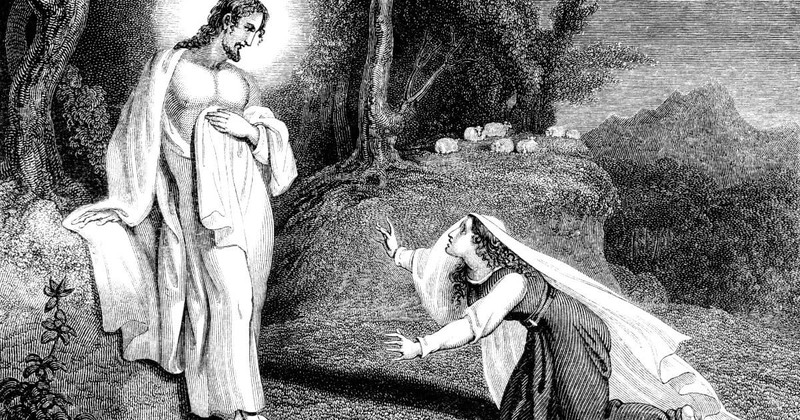
Reading the whole Bible—if taken all at once—can feel overwhelming; seeing the themes God has woven into each book will help us more easily remember the patterns in His master tapestry. Here are some brief summaries of the New Testament books for your large scope studies.
Image Credit: Thinkstock.com

Matthew
This book opens the New Testament with the genealogy of Jesus, and the Good News breaking forth. Like all the gospels, Matthew covers the birth, life, death, and resurrection of Christ. Appearing in the late 60s AD, it was written by Matthew, one of the disciples. His Jewish cultural heritage significantly influences the events Matthew highlights, so that all may know the long-awaited King has come!
Image Credit: Thinkstock.com

Mark
This gospel is driven by urgency and action. Barnabas' cousin, (John) Mark makes his first appearance in Mark 14, and was the catalyst for the rift between Paul and Barnabas in Acts 15. It is commonly believed Mark wrote this account by way of Peter's testimony. Peter was an eye witness to Jesus' ministry and one His closest disciples. This vivid narrative imparts to readers both Good News and a call to action in the midst of persecution. Now is the time of salvation!
Image Credit: Thinkstock.com

Luke
Doctor Luke investigates and reports his findings in this gospel, composed as a compilation of eye-witness accounts, and an evangelistic letter to Theophilus. This prequel to Acts, with Matthew and Mark, completes the Synoptic Gospels. Written with literary precision and detail that illuminates the way to salvation through Christ for ALL people, Luke conveys many of the same events found in Matthew and Mark, but offers a special focus on how Jesus crossed racial, sexist, and socioeconomic boundaries to share God's rescue plan with any who had ears to hear.
Image Credit: Thinkstock.com

John
The "disciple that Jesus loved" shares how, "God so loved the world that He gave His only Son...," and magnificently displays the moments revealing Jesus as God the Son. John's theologically rich gospel of love, light, and abiding came approximately 20 years after the other gospels, and is often the first book prescribed for new believers. John opens with poetic allusions to Jesus' powerful work in creation, and acknowledges that the world would not have room for the books that could be written about all Jesus did.
Image Credit: Thinkstock.com

Acts
The days of the early church were filled with adventure, persecution, conversion, and miracles. Jesus' promise of the Holy Spirit's arrival is fulfilled. Luke recorded the early church's history in this second letter to Theophilus when believers began to carry the gospel to all the world. Peter boldly proclaimed the gospel, Saul became Paul, and the church thrived. Filled with evangelistic awe and supernatural history, Acts shows what God accomplishes through Holy Spirit filled people.
Image Credit: Thinkstock.com

Romans
Paul wrote many letters to the congregations of churches he planted, addressing pressing issues and offering encouragement. Romans begins with the lostness of humanity, in desperate need for a Savior; identifying Jesus as the God-man who gave His life as a ransom for many, the letter then unpacks the gospel's implications for: foundational identity change, church relationships, community and civic life, and discipleship propagation. Justification through faith alone is the central theme that sets Christianity apart from all other religions. This book helps the reader see concepts from the whole Bible through a gospel lens.
Image Credit: Thinkstock.com

1 Corinthians
1 Corinthians 13 is one of the most commonly referenced scriptures at weddings, but the book itself was not written to preside over happy occasions; it was intended to correct and guide a licentious church. Concerns about spiritual pride, sexual immorality, the order of worship, and unloving behaviors led Paul to admonish the Corinthians and point them back to the ways of Jesus.
Image Credit: Thinkstock.com

2 Corinthians
While the first letter to the Corinthians was filled with instruction this second letter is an emotional investment. Paul details his own life, joys, and struggles and calls all who have been made new to the ministry of reconciliation as they find comfort in God.
Image Credit: Thinkstock.com

Galatians
As the church grew, gentiles were joining by the thousands, and with dramatic changes to the composition of God's people, tensions arose. Paul confronts Peter for allowing circumcision to create separations in the church. Paul reminds the people of Galatia that it is for freedom we have been set free, that only faith in Christ, not obedience to the law, can save. He contrasts the fruit of the flesh and the fruit of the spirit, and encourages continuing to sow seeds of righteousness.
Image Credit: Thinkstock.com

Ephesians
Located in Asia Minor, Ephesus was a center of trade and commerce. Worship of the goddess Diana was common throughout, but the gospel breathed new hope into people failed by the false goddess. Unity and sacrificial love are essentials among those redeemed by Christ, and marriage is presented as a picture of Christ and the church. Knowing who and what you are—alive with Christ, provides hope in a world where there are spiritual forces at work.
Image Credit: Thinkstock.com

Philippians
From prison Paul declares, "Rejoice in the Lord always; again I say rejoice."(Philippians 4:4) For those seeking to grow in humility and thankfulness in the midst of suffering, meditate here. Paul sends a personal thank-you to the people of Philippi for sent him gifts during his internment.
Image Credit: Thinkstock.com

Colossians
Battling against false gospels, heresy was gaining traction in Colossae, and Paul's letter was intended to put a stop to its momentum. Focusing on the sufficiency of Christ in all things and exalting Him as the fully-man and fully-God Savior. Paul exhorts them to "put on" all the characteristics of Christ.
Image Credit: Thinkstock.com

1 Thessalonians & 2 Thessalonians
Paul takes a dive into eschatology, clarifying expectations for the last days to the people of Thessalonica. He exhorts the new believers to stand firm as they offer thanksgiving amidst persecution, hoping beyond this world, and continuing to grow in faith as they wait for Christ's return.
Image Credit: Thinkstock.com

1 Timothy & 2 Timothy
Busily planting churches as he went into the world with the gospel, Paul also trained others to follow Christ. He commissioned his son in the faith, Timothy, to care for some of the churches in Asia Minor in his stead. These instructions guided Timothy on the order of worship, choosing leaders, and how God's Spirit changes us.
Image Credit: Thinkstock.com

Titus
Titus often acted as Paul's messenger, delivering many New Testament letters to their intended churches. Paul writes to Titus in Crete, with pastoral instructions for how to organize men and women in leading the church. The necessity of sound doctrine is again emphasized, along with behavior that reflects conforming to Christ's nature and character.
Image Credit: Thinkstock.com

Philemon
Philemon was the owner of a slave named Onesimus who had wronged his master. Paul writes to Philemon with an appeal on the behalf of Onesimus, who while on the run became a Christian. Onesimus is willing to return to work for his master, being sent with Paul's recommendation that Onesimus be accepted. Though brief, Philemon describes how grace becomes the currency for brothers and sisters who come in repentance, desiring reconciliation.
Image Credit: Thinkstock.com

Hebrews
The author isn't known, but is clearly educated in Jewish law and culture. He shows Jesus as greater than all other heroes of the faith and calls Him the Great High Priest. We are encouraged to seek God boldly in prayer, anchor our hope in Christ, and run our race with perseverance.
Image Credit: Thinkstock.com

James
Filled with wisdom and practicality, James the half-brother of Jesus, describes the difficulty of taming the tongue. He does not hold back truth, showing how living faith differs from dead. He tells believers to seek wisdom, stay faithful, watch your mouth, and love God's ways.
Image Credit: Thinkstock.com

1 Peter & 2 Peter
Peter who walked with Jesus, denied Him three times, and spread the gospel in miraculous ways, wrote his first letter to encourage persecuted Christians, and the second to combat false teachings. The sufferings of Christ prepare us for sharing about the hope within us. As we grow in godliness and Christian practice our discernment will sharpen and we will be able to resist the enemy as we wait for Christ's ultimate victory.
Image Credit: Thinkstock.com

1 John, 2 John, and 3 John
John (the apostle who Jesus loved) authored not only the gospel of John, but also the letters of 1st, 2nd, and 3rd John (and Revelation). The vocabulary is consistent with his style, and highlights the value of walking in both truth and love. He warns the church to be discerning about those who come preaching with the spirit of the antichrist, to be hospitable to those in the faith, and letting the work of Christ continue to transform and guide them from darkness to light.
Image Credit: Thinkstock.com

Jude
Jude writes in order to combat the same false teachings addressed in 2nd Peter, but also highlights the glory and trajectory of salvation. He dives deep into Jewish history to make the point that God's grace was not cheap and should not be used as a license to sin but rejoiced in with love-fueled worship.
Image Credit: Thinkstock.com

Revelation
God uncovered a vision of history's culmination, and through vivid imagery the ultimate victory of Christ to John. With that prevailing hope we wait with expectation for Christ's return, ready for tribulation and corruption to mar the days before He arrives. We can rejoice because: God will be victorious! All will be made right! God is Glorious!
Image Credit: Thinkstock.com
----
Chara Donahue is a freelance writer who is working on her first book. She enjoys doing biblical counseling, speaking to women, and savoring coffee when her four kids are out playing with dad. She holds an MSEd from Corban University, is passionate about seeing people set free through God's truths, and is the founder and editor of Anchored Voices. Get in touch with her on Facebook or Twitter.
Originally published Friday, 08 September 2017.









